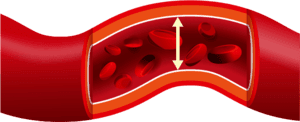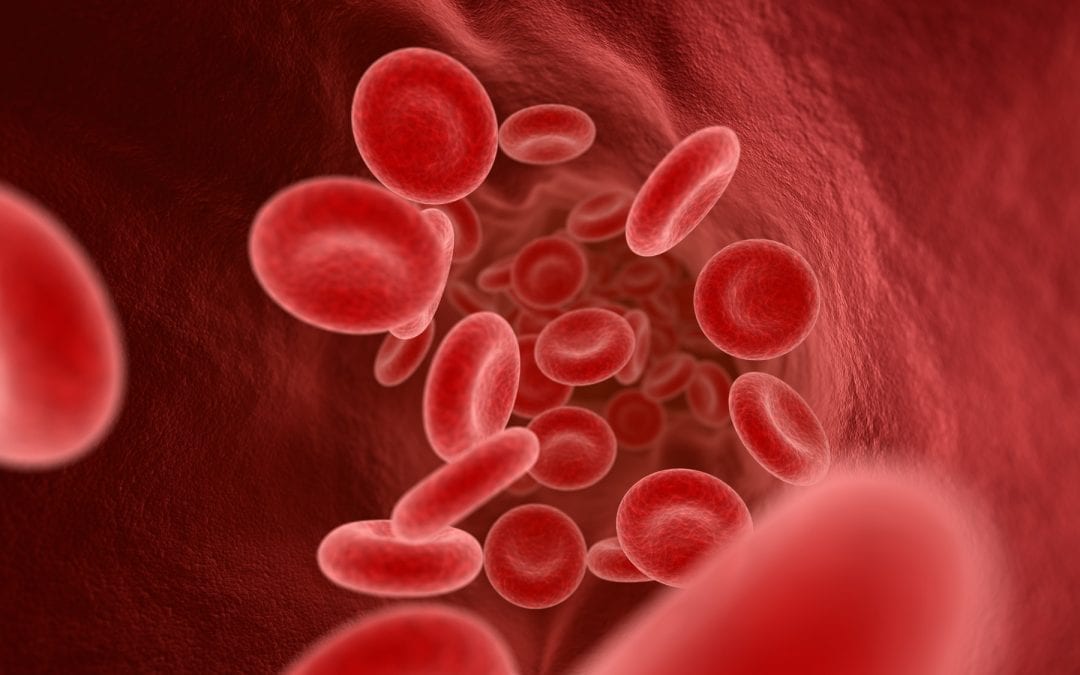What is vasodilation?

Before we jump into what causes vasodilation, the first question is – what even is it?
Vasodilation is when the walls of blood vessels relax and widen. (This is opposite of vasoconstriction, when the blood vessels narrow.) It occurs naturally in the body, but many people take medications or supplements known as vasodilators to cause vasodilation as they need it.
What does vasodilation do?
Because it opens up your blood vessels, vasodilation also
- Improves blood flow
- Lowers blood pressure
- Decreases vascular resistance (factors that make it harder for the blood to flow)
What causes vasodilation?
There are many causes of vasodilation. Several are natural reactions in your body. And, as was mentioned above, vasodilators can also be included in your diet to open the blood vessels.
Natural Vasodilators
Your body naturally produces substances that lead to vasodilation. These include nitric oxide, carbon dioxide, and hormones like acetylcholine, prostaglandins, and histamine.
A Lack of Oxygen or Nutrients
Your body recognizes when certain areas are not getting enough oxygen or nutrients. Tissues respond to this problem by releasing vasodilators of their own into the interstitial fluid, which is the fluid that surrounds the cells. The vasodilators eventually get into capillary beds and cause vasodilation in the area.
Temperature

In a cold environment, vasoconstriction actually occurs first in your extremities (especially your fingers) to reduce heat loss. But about five to ten minutes later, the blood vessels in the fingers will suddenly vasodilate. This is probably due to the decrease in neurotransmitters due to the cold. This increase blood flow to the fingers and subsequently raises the temperature in them. This process is sometimes known as the “hot aches” which can be rather painful.
On the other hand, when you are in a warm environment your blood vessels will vasodilate. Vasodilation directs more blood flow to your skin to dissipate excess heat.
Alcohol (ethanol)
Alcohol is known to cause vasodilation. This is what causes the warm, sweaty, or flushed feeling people experience after drinking. Know that alcohol also increases blood pressure and is not considered a healthy source of vasodilation.
Exercise
Your body needs more oxygen and nutrients when you exercise, so your body works to compensate. Vasodilation occurs to distribute more oxygen and nutrients to the body.
Inflammation
Inflammation is your body’s defense against diseases, injuries, foreign invaders, and a variety of conditions. Vasodilation facilitates blood flow to the infected or injured area. It causes the redness you see along with the inflammation or swelling.
Vasodilators Medications or Supplements
There are certain drugs known as vasodilators that will dilate your blood vessels. They often work to relax the blood vessel walls or go through your autonomic nervous system (the part of the nervous system that regulated vasodilation and vasoconstriction).
Examples of vasodilators include
- Thiazide diuretics. These are medications act on the kidneys to help the body eliminate sodium and water, reducing blood volume. They also lower blood pressure.
- Angiotensin-converting enzyme (ACE) inhibitors. These relax the blood vessels by stopping the formation of a natural chemical that narrows the blood vessels.
- Angiotensin II receoptor blockers (ARBs). These block the action (not formation) of the natural chemical that narrows the blood vessels.
- Calcium channel blockers. These help relax the muscles of your blood vessels. Some slow the heart rate.
Nitric oxide inducers like l-arginine are also vasodilators. The body converts the l-arginine to nitric oxide in the body, and the nitric oxide works to expand blood vessels and relax blood vessel walls.
Should I take a vasodilator?
Always talk with your doctor before taking a vasodilator, whether it is a supplement or medication. They are beneficial to those with high blood pressure or who are at risk for heart disease, but it may not be right for everyone. Talk with your doctor to see if l-arginine or another vasodilator would be right for you.
Resources
- https://en.wikipedia.org/wiki/Vasodilation
- https://www.mayoclinic.org/diseases-conditions/high-blood-pressure/in-depth/high-blood-pressure-medication/art-20048154
- https://www.healthline.com/health/vasodilation


